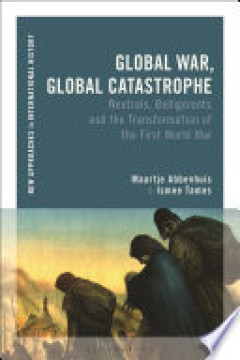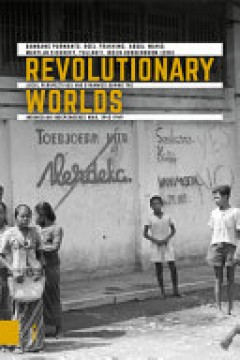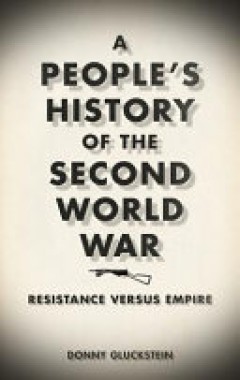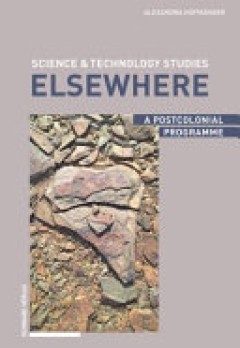Filter by
# Debug Box
/var/www/htdocs/pustaka-digital/lib/SearchEngine/SearchBiblioEngine.php:688 "Search Engine Debug 🔎 🪲"
Engine Type ⚙️: "SLiMS\SearchEngine\SearchBiblioEngine"
SQL ⚙️: array:2 [ "count" => "select count(sb.biblio_id) from search_biblio as sb where sb.opac_hide=0 and (sb.call_number LIKE :callnumber)" "query" => "select sb.biblio_id, sb.title, sb.author, sb.topic, sb.image, sb.isbn_issn, sb.publisher, sb.publish_place, sb.publish_year, sb.labels, sb.input_date, sb.edition, sb.collation, sb.series_title, sb.call_number from search_biblio as sb where sb.opac_hide=0 and (sb.call_number LIKE :callnumber) order by sb.last_update desc limit 10 offset 10" ]
Bind Value ⚒️: array:1 [ ":callnumber" => "9%" ]

The first to be destroyed : the Jewish community of Kleczew and the beginning…
The Jewish community of the city of Kleczew came into existence in the sixteenth century. It remained large and strong throughout the next four hundred years, and in the eighteenth and nineteenth centuries it constituted 40-60% of the total population. The German army entered Kleczew on September 15, 1939, shortly after the outbreak of World War II. The communities of Kleczew and the vicinity w…
- Edition
- -
- ISBN/ISSN
- 9781618112859
- Collation
- xxvii + 622 p
- Series Title
- -
- Call Number
- 940.531844 WME f

Global war, global catastrophe : neutrals, belligerents and the transformatio…
Winner of the World War One Historical Association’s 2021 Norman B. Tomlinson, Jr. Prize Global War, Global Catastrophe presents a history of the First World War as an all-consuming industrial war that forcibly reshaped the international environment and, with it, impacted the futures of all the world’s people. Narrated chronologically, and available open access, the authors identify key the…
- Edition
- 13
- ISBN/ISSN
- 9781474275880
- Collation
- 248 p
- Series Title
- -
- Call Number
- 940.3 MAA g

Revolutionary worlds. Local perspectives and dynamics of the Indonesian Indep…
Revolutionary Worlds looks at the Indonesian revolution (1945-1949) from a local and regional perspective. With seventeen contributions, Indonesian and Dutch researchers bring to life the revolutionary world from widely differing perspectives. The authors explain how Indonesian, Chinese, Indian and Eurasian civilians, fighters, farmers and officials experienced and shaped the often volatile per…
- Edition
- 1
- ISBN/ISSN
- 9789463727587
- Collation
- 538p
- Series Title
- Onafhankelijkheid, Dekolonisatie, Geweld en Oorlog in Indonesië 1945-1950,
- Call Number
- 950 REV b

The lives of stories: three Aboriginal-settler friendships
The Lives of Stories traces three stories of Aboriginal–settler friendships that intersect with the ways in which Australians remember founding national stories, build narratives for cultural revival, and work on reconciliation and self-determination. These three stories, which are still being told with creativity and commitment by storytellers today, are the story of James Morrill’s adopti…
- Edition
- -
- ISBN/ISSN
- 9781760462413
- Collation
- 274 p
- Series Title
- -
- Call Number
- 994.410049915 DOR t

What about Asia? : revisiting Asian studies
What about Asia? Revisiting Asian Studies brings together scholars from Asia, Europe and America to test the strength of a field of study which, considering the rise of Asia, should be gaining momentum. But is it? This is one of the many questions that the contributors to this volume ask themselves. In the past decade the use and legitimacy of area studies, and in particular Asian studies, have…
- Edition
- 1
- ISBN/ISSN
- 9053569596
- Collation
- 108p
- Series Title
- -
- Call Number
- 950.0711 WHA v

A people's history of the Second World War : resistance versus empire
A People's History of the Second World War unearths the fascinating history of the war as fought 'from below'. Until now, the vast majority of historical accounts have focussed on the conflict between the Allied and Axis powers for imperialist mastery. Donny Gluckstein shows that in fact between 1939 and 1945 two distinct wars were fought – one ‘from above’ and one ‘from below’. Using…
- Edition
- 1
- ISBN/ISSN
- 9780745328034
- Collation
- ix, 262p
- Series Title
- -
- Call Number
- 940.53 DON

Indigenous Sport and Nation-Building : Interrogating Sámi Sport and Beyond
This book investigates the social, political, and cultural dimensions of Indigenous sport and nation-building. Focusing on the Indigenous Sámi of Norway, Sweden, Finland, and Russia, it addresses how colonization variously impacts organizational arrangements and everyday sporting life in a modern world. Through detailed case data from the Norwegian side of Sápmi (the land of the Sámi), this …
- Edition
- -
- ISBN/ISSN
- 9781000599237
- Collation
- 183 p
- Series Title
- -
- Call Number
- 948.0049457 LLE I

Microhistories of technology : making the world
In this open access book, Mikael Hård tells a story of how people around the world challenged the production techniques and products brought by globalization. Retaining their autonomy and freedom, creative individuals selectively adopted or rejected modern gadgets, tools, and machines. In standard historical narratives, globalization is portrayed as an unstoppable force that flattens all obsta…
- Edition
- -
- ISBN/ISSN
- 9783031228131
- Collation
- xx, 290p
- Series Title
- Palgrave Studies in the History of Science and Technology
- Call Number
- 907.2 MIK m

Travelling the Korosko Road : archaeological exploration in Sudan's Eastern D…
This volume publishes accounts of archaeological exploration carried out during the last 30 years or so in the Sudanese Eastern Desert. It is divided into two related parts. The first and foremost covers results from the work of the Centro Ricerche sul Deserto Orientale (CeRDO), which is based at Varese in northern Italy. Between 1989 and 2006, CeRDO, directed by the brothers Alfredo and Angelo…
- Edition
- -
- ISBN/ISSN
- 9781789698046
- Collation
- xxiii, 220p
- Series Title
- -
- Call Number
- 962 TRA t

Science & Technology Studies Elsewhere : A Postcolonial Programme
In April 2017, scientists took to the streets in a historically unprecedented Global March for Science. The event was seen as symbolic of a crisis in the relationship of science and society. This book considers the Global March for Science from a postcolonial perspective to inquire into the toolkit that the academic field of Science & Technology Studies (STS) has to offer. It argues that new co…
- Edition
- 6
- ISBN/ISSN
- 9783757400347
- Collation
- -
- Series Title
- -
- Call Number
- 900 HOF s
 Computer Science, Information & General Works
Computer Science, Information & General Works  Philosophy & Psychology
Philosophy & Psychology  Religion
Religion  Social Sciences
Social Sciences  Language
Language  Pure Science
Pure Science  Applied Sciences
Applied Sciences  Art & Recreation
Art & Recreation  Literature
Literature  History & Geography
History & Geography